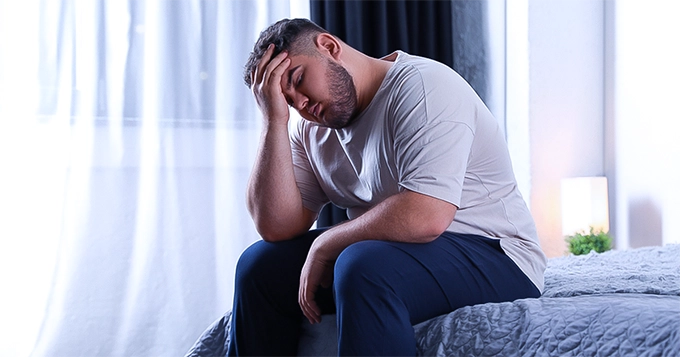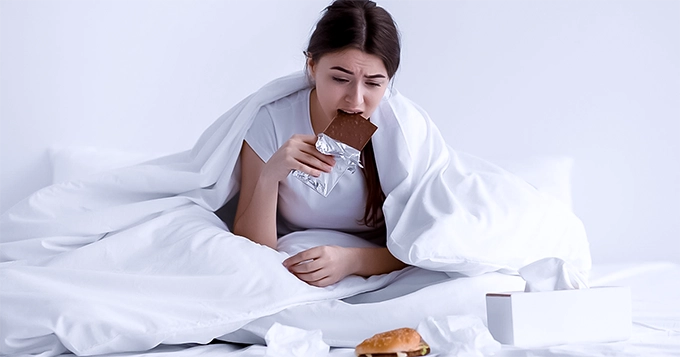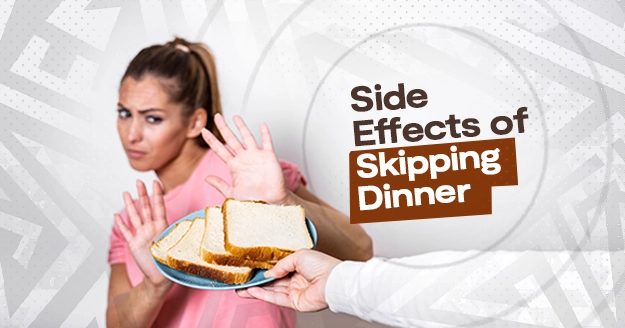Is skipping dinner good for weight loss?
Skipping dinner as a weight loss strategy can be effective for some individuals, but it may not be suitable or healthy for everyone. Weight loss ultimately depends on engaging or putting your body in a calorie deficit, which means consuming fewer calories than what your body needs.
And you might think that skipping meals equals less calorie intake in a day, which equals weight loss. But that’s not a sustainable way of losing weight. It’s important to consider the potential drawbacks and individual factors.
Skipping meals rarely results in weight loss in the long term. But if you still need more answers to the question, “Is it okay to skip dinner?” continue reading.
Here Are 7 Side Effects to Your Body When You Skip Dinner
1. Energy levels will go down
You will suffer a reduction in blood sugar, or glucose, the primary sugar found in your blood, if you skip dinner. Low blood sugar might make you feel lethargic, woozy, sluggish, unsteady, and as if you could faint.
If you regularly engage in physical activity or have specific dietary needs, skipping dinner may not provide enough fuel or nutrients to support your body adequately.
2. Can mess with your body’s inbuilt hunger cues
Your body naturally produces hormones that serve as hunger and fullness cues, letting you know when to eat and when to quit. Insulin, leptin, cortisol, and ghrelin are among the hormones that are disturbed and will not properly work when hunger cues are ignored.
The hormone that makes you feel hungry, ghrelin, will be produced by your body in increasing amounts if you keep skipping dinner or other meals. Additionally, it will result in reduced leptin production, which will make it more difficult for you to recognize when you are full and may cause binge eating or overeating.
Since it disrupts your body’s natural hunger and satiety cues, it can potentially cause irregular eating patterns.
3. Serious cravings for high-carb and sugary foods
Strong cravings are one of the consequences of ignoring your hunger cues, having low blood sugar levels, and not eating for an extended period of time. Instead of reaching for healthy and nutrient-dense foods, you may be reaching for carbs or sweets. Since both sugar and carbohydrates are known for providing sporadic bursts of energy, you will tend to want them more. That may quickly make you feel better, but not for long.
4. Irregular digestion
Skipping dinner regularly can disrupt your bowel movements and lead to irregularity. This is because food intake stimulates the digestive system, and when you skip a meal, the natural movement of the digestive tract can be affected.
If you tend to skip dinner and then go to bed on an empty stomach, you may be more prone to experiencing acid reflux or heartburn. This occurs because the stomach acid has a higher chance of flowing back up into the esophagus when the stomach is empty.
Skipping dinner can also lead to nausea, diarrhea, or even constipation. You may get stuck into the vicious cycle of skipping meals and then binge eating. Nutrient deficiencies can lead to various digestive issues over time.
5. High risk of eating disorders
Eating disorders are complex mental health issues that involve a range of factors, including genetics, psychological factors, societal pressures, and personal experiences. Skipping dinner alone does not directly cause eating disorders, but it can potentially contribute to the development or worsening of disordered eating patterns in susceptible individuals.
Is it okay to skip dinner?
Skipping meals, such as dinner, as a weight loss strategy or due to body image concerns, can be a behavior associated with certain eating disorders. These disorders involve distorted body image, extreme fear of weight gain, and an unhealthy preoccupation with food and eating habits. In such cases, skipping dinner may be part of a larger pattern of restrictive eating or bingeing and purging behaviors.
6. Effects on your sleep cycle
You may experience sleep deprivation if you skip meals since it will significantly disrupt your sleep pattern. Lack of sleep can impact your immune system, emotions, vitality, and metabolism negatively.
Having dinner early gives you at least 2-3 hours before going to bed. Due to this pause, much of the digestive process has already taken place, and digestion does not proceed when the body is at rest. Additionally, the body uses less energy to digest meals and receives enough rest. This can definitely contribute to a night of better sleep.
7. You may experience anxiety
Those who make it a habit to skip supper frequently could develop a nocturnal eating habit, most likely one that involves junk food. Consuming junk food boosts the body’s stress hormone or stress chemical called cortisol. This elevates the chance of mental health issues.
Skipping meals leads the body to become stressed, which ultimately promotes anxiety, as well as other issues such as depression, high blood pressure, and diabetes.
Conclusion
Does skipping dinner help lose weight? In the short term, probably yes.
However, promoting a healthy relationship with food and body image is important for overall well-being. If you want to lose weight, it’s absolutely advisable and better to adopt a sustainable approach to eating that supports both your physical and mental health.
Instead of skipping meals or engaging in extreme behaviors, a sustainable approach to weight loss involves making healthy changes to your lifestyle, such as focusing on balanced meals, portion control, and regular physical activity. Consulting with a healthcare professional or a registered dietitian can help you develop a personalized and sustainable weight loss plan that suits your specific needs and goals.












